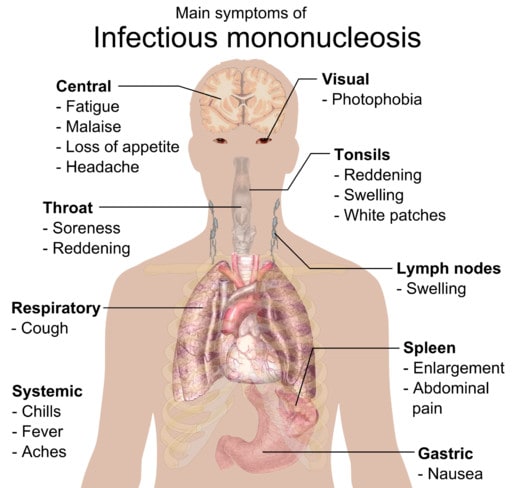Glandular Fever in Children: Recognizing the Symptoms Early On
Hey there, super parents! If you’re here, you might be concerned that your shining star might be feeling under the weather and you suspect it could be glandular fever. Fear not! We’ve crafted this bright and cheery guide to walk you through the symptoms of glandular fever in children, because early recognition and lots of TLC can make all the difference.
What is Glandular Fever, Anyway?
Glandular fever, also known as infectious mononucleosis or “mono”, is a common viral infection that often spreads through saliva (hence its nickname “the kissing disease” – but we’ll keep it PG for the little ones who might catch it from shared toys and cups!). It’s mostly seen in teenagers and young adults, but younger children can catch it too. The culprit behind this illness is the Epstein-Barr virus (EBV), and once it’s in the system, it tends to stick around for a bit like an uninvited house guest.
Spotting the Symptoms: The Early Birds!
Getting ahead of the game is vital, and knowing what to look for can help you support your kiddo with just the right dose of cuddles and care. Here’s what to keep an eagle eye on:
- Fever – Children with glandular fever may have a fever that comes and goes over the course of several days or even weeks. It’s the body’s way of saying “I’m fighting off an intruder!”
- Sore Throat – It’s more than just a little tickle; we’re talking about a sore throat that seems to overstay its welcome and can sometimes make swallowing more of a chore than a simple gulp.
- Swollen Glands – Have you noticed any lumps and bumps, particularly around the neck? That’s your little one’s lymph nodes working overtime to battle the virus.
- Fatigue – If your usually energetic tyke is now more of a sleepy sloth, this could be a sign. Glandular fever can make kids feel tired, and not just “I had a long day” tired, but “I can barely get out of bed”.
- Loss of Appetite – A once ravenous appetite turned picky could also signal that something is amiss.
- Muscle Aches – Kids complaining of feeling achy all over? That can be glandular fever saying “hello”.
Keep in mind, young children may not be able to express how they’re feeling as clearly as older kids or adults. They could just seem generally unwell, so trust your parental instincts if you think something’s up.
When Symptoms Walk on the Wild Side: Severe Cases
While most cases of glandular fever are as mild as a lamb, some can roar like a lion. Here are some signs that it’s time to call on the doc:
- Difficulty Breathing or Swallowing – If your child has trouble catching their breath or swallowing, it could be due to swollen tonsils or glands, which requires prompt medical attention.
- Severe Pain – Severe abdominal pain could be a sign of an enlarged spleen, another possible effect of glandular fever, and needs immediate medical care.
- Persistent High Fever – A fever that won’t break after a few days should be checked out to rule out other potential issues.
- Intense Headache – While headaches can be common, an intense headache that doesn’t improve with over-the-counter pain relievers should be evaluated.
Stay tuned to your little one’s well-being, and whether they need a cuddle or a clinical eye, you’ll be ready to leap into super-parent action!

Diagnosis: Piecing Together the Puzzle
Okay, so you’ve spotted the symptoms and you’re ready to play detective. Now it’s time to bring in a professional gumshoe—a pediatrician. To diagnose glandular fever, your child’s doctor may perform:
- Physical examination – Checking for swollen lymph nodes, tonsils, liver, or spleen.
- Blood tests – Looking for antibodies that indicate an active or past EBV infection or checking white blood cell counts.
- Monospot test (heterophile test) – A quick test often used to diagnose mononucleosis.
Remember that not all infections will result in a positive monospot test, especially in younger kiddos, so sometimes additional tests are needed for a solid detective conclusion.
Treatment: There’s No Magic Pill, But…
Patience is key, as glandular fever often needs to run its course, which could take a few weeks (or sometimes longer). However, you can score some parenting points by helping ease the unpleasant symptoms. Here’s how:
- Hydration – Encourage your child to drink plenty of fluids. Juices and soups can be soothing, especially if swallowing is hard.
- Rest – This one is huge! Make sure your kid gets plenty of sleep and doesn’t overdo it with normal activities.
- Pain relief – Over-the-counter pain medications and fever reducers like acetaminophen or ibuprofen can relieve fever and aches (just be sure to avoid aspirin in children).
- Throat care – Warm salt water gargles or using throat lozenges (for older kids) can relieve sore throat discomfort.
A watchful eye for complications is also part of the treatment plan. Regular follow-ups with the doctor may be in order to ensure your child’s spleen is not at risk of rupture (a rare, but serious concern).
What Parents Should Know: Preparing for the Battle Against Glandular Fever
- Viral Lifecycle Awareness – EBV infections can be acute, but the virus remains dormant in the body. Knowing this can help you understand the importance of long-term immune health for your child.
- Infection Control – Since glandular fever is contagious, encourage good hygiene habits, like frequent handwashing and not sharing cups or utensils.
- Being Support Savvy – Emotional support is just as vital as physical. Be there for a chat, a hug, or to listen—it all aids in healing.
- Splenic Sensibility – With spleen enlargement a possibility, protect your child from rough play or contact sports that could cause injury.
- Long Haul Patience – Recovery varies, and it might take several weeks to several months. Be patient and supportive. Your child will get back to their usual playful self in time.
Self-Care for Parents: Caring for the Caregiver
While you’re donning your superhero cape and taking care of your under-the-weather munchkin, don’t forget about your wellbeing. Parenting a sick child can be exhausting, both emotionally and physically.
- Take Breaks – Tag-team with another caregiver when possible. Brief breaks can re-energize you for the caregiving marathon.
- Stay Healthy – Keep up with your nutrition, hydration, and sleep. A healthy parent is a more effective caregiver.
- Lean on Your Squad – Seek emotional support from friends, family, or parent groups. You’re not alone!
See more great Things to Do with Kids in New Zealand here. For more information see here
Disclaimer
The articles available via our website provide general information only and we strongly urge readers to exercise caution and conduct their own thorough research and fact-checking. The information presented should not be taken as absolute truth, and, to the maximum extent permitted by law, we will not be held liable for any inaccuracies or errors in the content. It is essential for individuals to independently verify and validate the information before making any decisions or taking any actions based on the articles.




